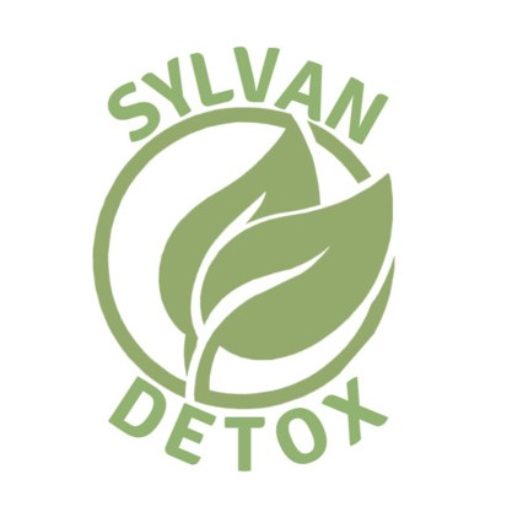Sylvan Detox: Addiction Treatment Center in San Fernando Valley: Detox, Rehab for Alcohol, RX, Drugs
Finding the right addiction treatment center in San Fernando Valley is the first step to regaining your health. Prescription drugs, illicit drugs, and alcohol can cause profoundly powerful addictions that not only rob people of their health, but also other important aspects of their life. Entering rehab signals the beginning of the healing process. The best addiction treatment centers in California provide empathetic care and offer treatment programs based on medically sanctioned treatments combined with alternative and holistic therapies designed to promote genuine and lasting recovery.
Sylvan Detox features medical detox and residential inpatient treatment programs. If you are living in San Fernando Valley and want to end your dependence on alcohol or drugs, Sylvan Detox can help.
Table of Contents
- Why Choose Sylvan Detox
- Highest Rated Alcohol Detox Program
- Drug Detox Program
- Top Alcohol Rehab in San Fernando Valley
- Drug Rehab in San Fernando Valley
- How Much Does Rehab Cost in San Fernando Valley?
- How Long Is Detox?
- How Long Is Rehab?
- 30 Day Short Term Rehab
- Long Term Rehab (60-90 Days)
- Additional Treatments and Addiction Treatments Available
- Does My Insurance Have Coverage for Rehab?
- MAT
- Cognitive Behavioral Therapy
- Dialectical Behavioral Therapy
- Rational Emotive Behavioral Therapy (REBT)
- Dual Diagnosis Treatment
- EDMR
- Relapse Prevention
- Life Skills Training
- Vocational Training
- Group Therapy
- Experiential Therapy
- One-on-One Therapy
- Family Therapy
- Trauma-Informed Therapy
- Physical Fitness
- Off-site Activities
- 12-Step Rehab in San Fernando Valley
- Anxiety Disorder
- Bipolar Disorder
- Borderline Personality Disorder
- Codependency
- Depression
- Impulse Control Disorder
- Post-Traumatic Stress Disorder
- Why Choose Sylvan Detox?
Why Choose Sylvan Detox
Sylvan is a luxury rehab that is accredited by the Joint Commission and features clinically driven rehab programs. We offer medical detox and inpatient treatment. Clients who are addicted to alcohol, illegal drugs such as heroin and cocaine, or prescription drugs like opioid painkillers or sedatives can find the support they need to end their dependence. At Sylvan, we individualize our clients’ treatment programs to ensure they get the help they need. Sylvan also features dual diagnosis treatment as many people with substance use disorders also have a mental health issue that needs to be addressed.
Highest Rated Alcohol Detox Program
Alcohol detox in San Fernando Valley is generally the first step in the alcohol addiction recovery process. Many clients associated detox with withdrawal symptoms, but during medical detox, clinicians prescribe medications and soothing therapies like massage and saltwater therapy that induce comfort and reduce the severity of withdrawal symptoms. Clients are better able to relax as their body is weaned from the addictive chemical. After completing medical detox, clients can go on to the next phase of their recovery. It’s important to remember that detox only targets physical dependence. Rehab therapy is needed to target the other factors associated with drug and alcohol addiction.
Drug Detox Program
During drug detox in San Fernando Valley, clients can expect to find a safe and comfortable setting with round-the-clock support. Our clinicians offer medications to reduce unpleasant withdrawal symptoms. We also offer other therapies that can speed up detox and support clients’ comfort. The worst withdrawal symptoms usually present between 24 and 72 hours from the person’s last use of drugs or alcohol. Then, they gradually begin to feel better. Once they feel well enough and detox is complete, they can begin the rehab phase of their recovery program.
Top Alcohol Rehab in San Fernando Valley
At Sylvan, our alcohol treatment program is delivered by our team of caring addiction specialists and clinicians. We offer individual therapy and group therapy sessions. During the day, clients will attend these sessions. We build breaks into the daily routine so that clients can relax in their room or enjoy spending time outdoors or playing a game. Our alcohol addiction treatments address many different aspects of addiction and recovery. Clients learn to manage their addiction so that they can avoid relapse and rebuild their lives in the context of sobriety and healthy living.
Drug Rehab in San Fernando Valley: How Does It Work and What Is It Like?
Whether you’re addicted to a prescription drug or an illicit drug, you can get the help you need to end your dependence at Sylvan Detox. No matter what factors or triggers lead you to abuse drugs, you need to identify them so that you can begin to manage them in effective ways. Therapists help clients learn to manage triggers, which often include things like negative emotions and stress. Clients can expect to take part in group therapy sessions and one-on-one treatment sessions with a therapist. Our drug rehab programs help clients build a strong recovery foundation so they can put drugs behind them and lead a more healthful and rewarding life.
When you are ready and admitted into our drug addictions program near Santa Clarita, you will undergo a biopsychosocial assessment (a thorough medical and psychological exam) that will help us figure out the best treatments for your unique case. You will move into a medical detox plan, and then on into residential rehab. Each person’s program is different, but we will work with you to determine what the best course of action is for your needs. We can also refer you to outpatient programs within our network of facilities, giving you an easy transition back home and into your everyday life after inpatient detox and/or rehab.
How Much Does Rehab Cost in San Fernando Valley?
The cost of treatment in San Fernando Valley varies from one rehab center to another. The good news is that most insurance plans provide at least some coverage for substance abuse disorders and mental health disorders. Your rehab expense will depend on how much your insurer provides and how long you require treatment. The best course of action is to consult Sylvan Detox to discuss your treatment needs and insurance plan. Some people choose to pay for their treatment out of pocket, which is also an option.
How Long is Detox?
Medical detox is a week-long process, but sometimes it can be completed in a few days. Sometimes a person needs up to 10 days or so to complete the process. The length of time one spends in detox depends on the drug in question and how long they’ve been addicted to it or if they have multiple substance addictions. Their own unique chemistry can also inform the time frame. Usually, withdrawal symptoms peak between 24-72 hours after the last use of alcohol or the drug in question. After that, clients gradually begin to feel better. Once detox is complete, they can begin their rehab treatment program.
How Long is Rehab?
Drug and alcohol rehab programs usually run between 30-90 days. The length of time a person needs to achieve their recovery milestones depends on them. There’s no right or wrong time frame. The key is to remain in treatment until you feel stable and ready to transition back to your independent life. Some people leave rehab too soon. That’s a risk. For instance, leaving after medical detox is not advisable. Detox only addresses the physical dependence–not a person’s ability to manage their psychological triggers to use. Some people leave rehab after a couple weeks for one reason or another, but leaving too soon means that the individual doesn’t get the treatment they need to support long-term recovery.
30-Day (Short-Term Rehab)
Many people spend 30 days in inpatient rehab treatment for their alcohol or drug addiction. Generally, 30 days is the minimum time needed to create a strong recovery foundation. However, most people will continue to attend outpatient therapy or aftercare after completing their inpatient treatment program. This is ideal because ongoing support can help clients manage the stressors that inevitably occur during the early months of recovery. Are 30 days of treatment long enough for you to get well? It may be. However, at Sylvan, you can extend your time in treatment if you need to.
Long-Term Rehab (60 – 90 Days)
Many people remain in rehab for 60-90 days to get the support they need to manage their addiction successfully. Research shows that the longer people spend getting formal treatment for their alcohol or drug addiction, the less likely they will be to experience relapse. The more time you can devote to therapy, the better you will be able to manage your addiction. If you need to spend a longer time in therapy, you can get the long-term support you need at Sylvan Detox.
Additional Therapies & Addiction Treatments Available
Sylvan Detox offers clients a wide range of addiction treatments. Our programs are clinically driven and based on sound medically-sanctioned therapies like cognitive behavioral therapies and other forms of talk therapy. We also offer alternative and holistic treatments such as meditation and saltwater therapy that support recovery during detox and rehab programming. The combination of therapies ensures that each aspect of addiction is covered. Access to various treatment approaches supports lasting recovery. Clients are sure to find therapeutic options that work best for them.
Does My Insurance Have Coverage for Rehab?
The Affordable Care Act changed the healthcare landscape with its mandates. Medical insurance providers must now provide some coverage for substance abuse treatment and mental health treatment. The ACA outlines minimum levels of coverage that insurers must provide, but many insurances plan far exceed the minimum thresholds. If you aren’t sure if your insurance plan is accepted at Sylvan Detox or how much coverage you can expect for alcohol or drug treatment, you can contact us. Our insurance specialists will help you find all the information you need before enrolling for treatment and beginning your recovery journey.
Medication-Assisted Treatment (MAT)
Medication-assisted treatment (MAT) is an increasingly common form of addiction treatment that’s best suited for clients who are addicted to heroin and other opioids or alcohol. MAT relies on medications to help reduce the individual’s strong craving for the substance. In the case of opioid addiction, the medications can also ward off withdrawal symptoms.
Some people might need MAT for the duration of their medical detox program. Others rely on this treatment throughout their rehab program and even afterward. Medication-assisted treatment is an offering at Sylvan Detox. Our clinicians can prescribe this course of treatment if it’s right for you.
Cognitive Behavioral Therapy
Cognitive behavioral therapy (CBT) is a critical medically sanctioned addiction treatment. A form of psychotherapy, CBT sessions focus on helping individuals understand the powerful connections between their thoughts, feelings, and behaviors. Unhealthy thoughts such as thoughts related to low self-esteem, and negative emotions like anger can lead to behaviors like drinking excessively or using illegal drugs. By confronting the connections between one’s thoughts, feelings, and behaviors, one can begin to change them. CBT provides a core treatment for many addiction treatment centers all over the country.
Dialectical Behavioral Therapy
Closely related to CBT, dialectical behavior therapy provides a strong focus on distress tolerance. Distress comes in many forms, but they can all be triggers for a person to use drugs or alcohol. By becoming more adept at tolerating distress, clients are more likely to prevent relapse. During DBT sessions, they’ll learn how to become more ‘comfortable’ with distress in order to protect their recovery progress. This form of therapy also helps clients to regulate their emotions. Like CBT, DBT is featured in therapies for various mental health conditions as well.
Rational Emotive Behavioral Therapy (REBT)
Rational emotive behavioral therapy is related to DBT and CBT, but it places a strong emphasis on the unhealthy thoughts and feelings a person has. Therapists help clients confront unhealthy thoughts in order to inspire better behaviors. Unhealthy thoughts can take many forms. For instance, the belief in one’s unluckiness or unworthiness is an unhealthy one. Unhealthy thoughts and emotions can be strong triggers to drink or use drugs. It can be difficult to change thoughts that have been entrenched in a person’s mind for as long as they can remember, but that’s why professional treatment is so crucial to the recovery process. Trained therapists can help clients find the strategies needed to transform their entrenched thoughts and replace them with healthier ones that support recovery.
Dual Diagnosis Treatment
About a third of people who have a substance use disorder also have a dual diagnosis. Dual diagnosis refers to the occurrence of alcohol or drug addiction and a mental health disorder. Although the conditions are separate, they can impact one another. Simultaneous treatment for both conditions is ideal. Sylvan Detox and our clinicians can provide dual diagnosis treatment. If you’re suffering from alcoholism and bipolar disorder or Fentanyl addiction and PTSD, for example, you can get help managing both of these disorders. Dual diagnosis treatment may take the form of medication and therapy.
Eye Movement Desensitization and Reprocessing (EMDR)
Eye movement desensitization reprocessing (EMDR) is a unique form of treatment for people who suffer from emotional trauma. It’s becoming a common form of treatment for people diagnosed with post-traumatic stress disorder. During this therapy, therapists conduct treatment by asking certain questions about the past trauma and by using hand movements in front of the person’s eyes that trigger the movement of the traumatic memories from one part of the brain to another. This movement, which signifies the reprocessing aspect of the treatment, is associated with reduced feelings of trauma. While EMDR doesn’t ‘cure’ trauma, it does help clients cope more easily with feelings that have caused them profound discomfort.
Relapse Prevention
Managing a drug or alcohol addiction successfully means fending off relapse. Some people are at increased risk for relapse, so relapse prevention therapy is ideal for them. Someone addicted to drugs for a long time or who also has a dual diagnosis may need more support for coping with the triggers of relapse. During this form of therapy, clients and therapists work together to identify high-risk settings and situations and then develop strategies for avoiding them or coping when they can’t avoid them. Knowing how to identify the early stages of relapse also helps clients prevent relapse and keep their recovery progress on track. At Sylvan, our programs feature a strong relapse prevention component.
Life Skills Training
When a person has spent months or years living with addiction, their capability to maintain various life skills can erode. Maintaining a simple daily schedule, for instance, can be difficult at first. During life skills training, therapists help clients to revisit skills needed to live a normal daily life. Creating a daily structure with chores, goal setting, and improved communication can support a person’s continued recovery journey after they complete their inpatient rehab program. A sound daily structure can provide support for clients as they transition back to their independent lives.
Vocational Training
A person who’s been addicted to drugs and alcohol for a while may benefit from some vocational training during their rehab experience. In some cases, clients may want to change jobs once they leave rehab. Other clients may have been away from the work world for a long period of time. During vocational training, clients get the support that can help them obtain gainful employment. Training can take many forms and address topics like resume writing, professional communication, interviewing practice, leadership skills, and more.
Group Therapy
Group therapy plays a valuable role during addiction treatment. Group participants have the opportunity to learn about addiction and addiction management together. This allows them to also learn from each other, inspire one another, and support each other. Sylvan Detox features many treatment approaches that are offered during the group therapy format. Topics of discussion may vary considerably, but they tend to be focused on the subject matter that most people recovering from addiction can relate to. Group therapy remains a core aspect of most addiction treatment programs in San Fernando Valley and elsewhere in the country. Many clients enjoy the benefit of meeting with their peers. It’s not uncommon for them to develop strong bonds as they face recovery together.
Experiential Therapy
Experiential therapy relies on many types of activities for their therapeutic benefits. In this way, there are many forms of experiential therapy. Hiking and equine therapy use experiential therapy to support the recovery process. During rehab programming, therapists often develop activities that address some aspect of recovery. Groups might watch a film related to addiction and then discuss it during a peer group counseling session. A group might meet for a yoga session, also a form of experiential therapy. Many clients find that “doing” something is preferable to talking. Experiential therapy provides a welcome balance to talk therapy sessions.
One-on-One Therapy
Individual therapy with an addiction specialist is a core element of treatment at Sylvan Detox. During one-on-one therapy sessions, clients can work on issues they’re facing with their therapist. These may be personal issues related to their drinking or drug use. Past trauma or current problems can be triggers to abuse of drugs and alcohol. During these sessions, therapists will help their clients understand the triggers that lead them to use drugs and alcohol. They can then find ways to cope with these triggers so they don’t cause relapse. Individual therapy is private–between the client and the therapist, so it’s the perfect time to address any privacy issues the client is facing in relation to their addiction and recovery process.
Family Therapy
As many clients know, their families can also suffer from the impact of their drug and alcohol abuse. During family therapy, trained therapists help each member of the family work their problems that relate to their loved one’s addiction. They learn about addiction and how to provide healthy forms of support for their loved one. Therapists strive to help clients confront any dysfunction that may be present and to communicate with one another in healthful ways. Not all clients wish to participate in family therapy, but those that do can benefit from its healing assistance. Families can begin the process of repairing trust and learning how to help their loved one stay sober.
Trauma-Informed Therapy
Clients bring trauma with them to rehab in many forms. Sometimes the trauma stems from a difficult past, a past that led them to abuse alcohol or drugs. Sometimes the trauma has to do with the impact that their drug and alcohol abuse had on their lives. Therapists rely on trauma trauma-informedinformed therapy so that they can provide care that accounts for any trauma that affects the client. To successfully manage an addiction or dual diagnosis, clients must be able to cope with past trauma as well as current stress in healthy ways. Trauma-informed therapy is designed to help them do just that.
Physical Fitness
Physical fitness supports both mental and physical health. It can play an important role in recovering from an addiction or dual diagnosis. The great thing about physical fitness is that it can be highly individualized. A person doesn’t need to be an athlete or highly skilled to begin a fitness plan. Working at one’s own level and pace can support long-term recovery. Exercise not only supports physical health, but it can also alleviate mental stress, which is a great way to manage one’s triggers. Walking, jogging or swimming can help dispel stress, which can reduce the risk of relapse. At Sylvan, we encourage clients to make some form of physical fitness part of their daily/weekly routine going forward.
Off-Site Activities
Clients spend a lot of time in individual therapy and group therapy. While they also enjoy downtime so they can relax, some rehabs like Sylvan Detox also offer off-site activities that can complement the recovery process. These activities might involve seeing a play with a group or going for a hike somewhere in San Fernando Valley. Whether spending an afternoon at the beach or seeing a movie together, off-site activities help clients feel less isolated from the world around them even as they must take some time away from it to learn how to manage their condition.
12-Step Rehab in San Fernando Valley
12-step programs have been popular among people recovering from addiction for several decades. Although these groups do not feature clinicians or professional therapy, they can be extremely supportive of clients, especially those who have completed rehab programming and need some sort of ongoing aftercare support. At Sylvan, we offer 12-step programming in order to acquaint clients with the premise of these programs. Many choose to attend 12-step programs in San Fernando Valley after completing their Sylvan alcohol or drug rehab programs. These programs are based on a series of steps that promote the recovery journey.
Anxiety Disorder
Generalized anxiety disorder can greatly impact a person’s daily life. People who suffer from this disorder experience a sense of doom or panic that can persist for weeks, months, or even years. Symptoms associated with an anxiety disorder include insomnia, restlessness, feeling nervous, increased heart rate, increased sweating, trembling, and difficulty controlling worry. Anxiety can accompany addiction, and when it does, people need dual diagnosis treatment in order to manage both conditions. If both conditions are not managed, one can impact–worsen–the other. Sylvan Detox offers dual diagnosis treatment. Clients who suffer from generalized anxiety or related anxiety disorders like social anxiety can get treatment designed to help them manage their condition(s) successfully.
Bipolar Disorder
Bipolar disorder is a mental illness that is characterized by extreme mood shifts. The mood extremes can last for weeks or months. A period of manic high-energy is often followed by a period of severe depression. During treatment, clinicians often prescribe medication to help balance the individual’s mood. They also take part in therapy that helps them find ways to cope with the various highs and lows of their mood. Bipolar can accompany addiction. During dual diagnosis treatment, clients get help managing both of their conditions simultaneously for the best results.
Borderline Personality Disorder
A person diagnosed with a borderline personality disorder often struggles with their relationships and work. This mental health disorder is characterized by difficulty managing one’s emotions and behaviors. This difficulty is not dissimilar from the difficulty that people with an addiction struggle with as their emotions and behaviors also govern their condition. During therapy for borderline personality disorder, therapists work with clients to help them improve their self-image, more effectively manage their moods, and confront their unhealthy thoughts and behaviors in order to replace them with healthier ones.
Codependency
Codependent relationships are not uncommon among people with alcohol or drug addiction. The relationships might involve a couple, parent and child, or siblings. Codependent relationships generally involve one person who needs to be needed while the other needs attention or support. Codependency usually involves unhealthy support for the needy individual. An example of unhealthy codependency is when a partner makes excuses for the other partner’s drinking or drug use. They might give them money even though they suspect what it will be spent on. Rather than holding the drug or alcohol abuser accountable for their behavior, they excuse it or even enable it. Therapy helps both individuals identify their dysfunctional behaviors, feelings, and thoughts so they can change them.
Depression
Depression is a mental disorder that affects one in six people in the U.S. each year. This mental disorder is characterized by feelings of sadness or hopelessness. People who are clinically depressed might also experience problems sleeping, reduced energy, and overwhelming emotions. Doctors usually prescribe medications to help restore the individual’s chemical balance in their brain. They also rely on psychotherapy to help individuals manage their feelings and cope with this disorder in healthy ways. A person addicted to drugs and alcohol may experience symptoms of depression as a result of their substance abuse. A person with depression, in contrast, might turn to drugs and alcohol to escape from their depression symptoms.
Impulse Control Disorder
Impulse control disorder can take various forms, but in each case, individuals struggle to control their negative or unhealthy impulses. Forms of impulse control disorder include kleptomania and pyromania. Sometimes this disorder might accompany a drug or alcohol abuse disorder. Compulsions drive addiction. Getting treatment for both disorders at the same time prevents them from impacting one another. At Sylvan Detox, clients can expect to get the high-quality dual diagnosis needed to manage both conditions successfully.
Post-Traumatic Stress Disorder
Post-traumatic stress disorder can develop after a person is subjected to traumatic events. They might experience trauma or witness it. Some professions are at increased risk of developing PTSD. People in the military or police force are subjected to a high degree of trauma as a result of their job. However, trauma can also affect children and adults. Abuse or injuries, for instance, can cause PTSD. Many people turn to drugs or alcohol in order to soothe the symptoms of their PTSD, but this can pave the way to addiction quickly. That’s why Sylvan features treatment for PTSD as well as other trauma-informed therapies.
Why Choose Sylvan Detox?
Sylvan Detox is a leading medical detox and residential rehab center that can help clients end their dependence on drugs or alcohol. If you are addicted to RX drugs like prescription painkillers, illicit drugs like meth or heroin, or alcohol, you can get the help you need by enrolling at Sylvan right away.
We are a Joint Commission-approved addiction treatment center that features luxury amenities as well as experienced and talented clinicians. We have created a safe and welcoming environment where clients can immerse themselves in their recovery programs. Contact Sylvan to discuss enrollment. The sooner you get help, the sooner you can begin to heal.












